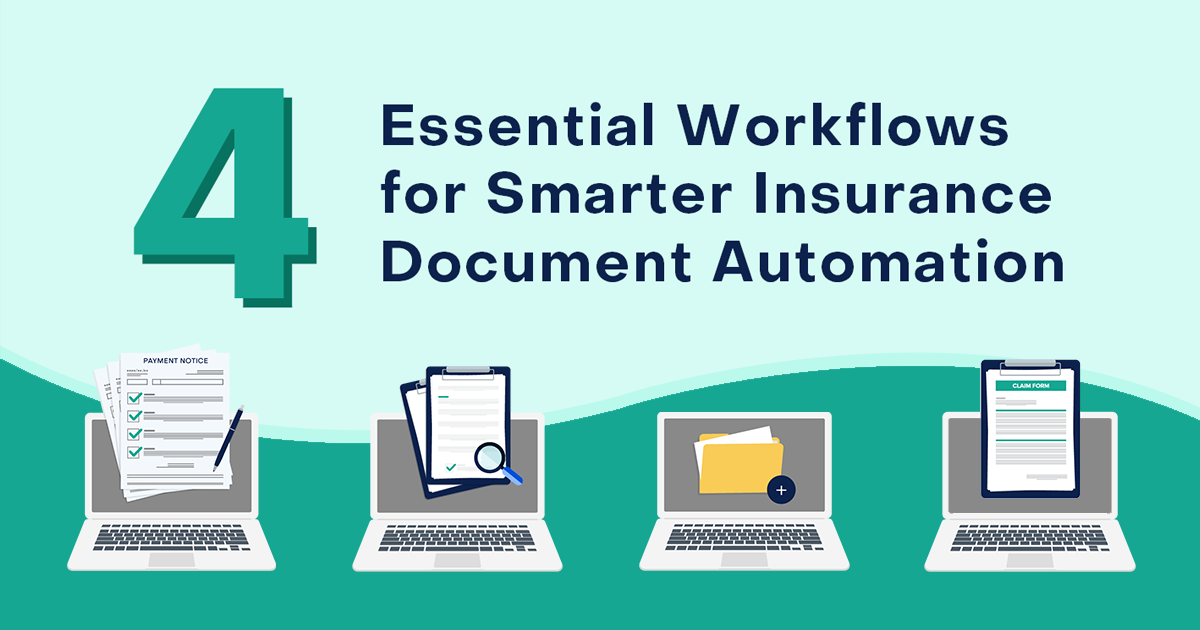It doesn’t matter if you run a local retail store or a massive ecommerce business. Managing complex SKU and product variation data is a pain. Unless you use Experlogix CPQ, of course!
In this article, we explain what SKUs are (just in case you need a refresher,) the challenges of managing multiple product variations, how Experlogix CPQ can simplify workflows, and more.
If you’re looking to streamline inventory management, handle discounts with ease, and send more accurate quotes in less time, this post is for you. Let’s get started!
What’s a Stock Keeping Unit (SKU)?
SKU stands for stock keeping unit. It’s a collection of 8 to 10 alphanumeric digits that help companies identify products, track inventory, and otherwise manage the items they sell.
You can find SKU codes on product packaging, price tags, receipts, ecommerce product listing, and inside inventory management and/or point of sale (POS) systems. It really just depends on the company that creates the SKUs and the products they sell. Speaking of which…
SKU data may seem random, but it’s not. Every letter and number represents something, such as the color, size, manufacturer, and price of a specific product.
One more thing: Unlike other product codes, SKUs are created by individual businesses. As such, they’re often customized to meet internal needs. This means that most SKU data is worthless to everyone who doesn’t work for the company that created the code.
How is an SKU Different From a Universal Product Code (UPC)?
Stock keeping units (SKUs) are not the same as universal product codes (UPCs).
As we described above, an SKU is an internal code that helps companies identify products and track inventory. UPC codes, on the other hand, are scannable bar codes that physical and online retailers use to reveal product details, like color, size, and price. They consist of 12 digits.
If you’re thinking, “SKUs and UPCs sound pretty similar,” you’re right. The main difference between the two codes is that SKUs are for internal use and UPCs are for external use.
Understanding Multiple Product Variations in SKUs
In retail, the term “multiple product variations” refers to a single product that can be modified in multiple ways. Each modification is based on a set of applicable attributes.
If you sell t-shirts, for example, your customers can choose different sizes and colors. Each size and color represents a different product variation. And every product variation results in a new SKU. Because of this, the same product can have dozens of different SKUs.
As you might expect, managing multiple product variations like this can be tricky…
Challenges of Managing Multiple Product Variations
While necessary, multiple product variations lead to problems with inventory management, pricing complexity, accurate quoting, and data consistency. Let’s dig deeper into each challenge:
Inventory Management
Tracking inventory for every product variation (and the resulting SKU) is a cumbersome task.
This is especially true for companies that use a manual inventory management system. Employees have to mark items sold and compare records to the available product in their company’s warehouse. It’s a time-consuming and resource intensive process. After all, employees who manage inventory can’t complete other tasks that boost revenue.
Fortunately, inventory management software can help. Invest in one of these tools to help track inventory with greater speed and accuracy and remove bottlenecks in the supply chain.
Pricing Complexity
Product variations can complicate the pricing process, too.
Let’s return to our previous example and assume you sell t-shirts from an online store. Sadly, your supplier charges more for blue shirts than for red shirts. To stay in business, you have to pass the extra cost to your customers. So, blue shirts cost $25 each, while red shirts cost $20.
You also sell a wide range of sizes, from XXS to XXL. Your supplier charges more for larger shirts, which forces you to increase prices for customers. So, an XXS red shirt costs $20. But an XXL blue shirt costs $30. ($20 for the shirt, $5 for the color, and $5 for the size.)
Is your head spinning yet? Now, imagine you’re in the manufacturing business and offer thousands of potential product variations. Your pricing situation is incredibly complex. The only way to ensure accurate prices across your entire line of products is to use reliable software.
Accurate Quoting
What if you employ a full sales team to help sell bespoke products? Then managing multiple product variations is even more of a challenge. Think about it…
A t-shirt company might have dozens of SKUs in its system—one for every combination of size and color. A manufacturing company that offers personalized products to each customer, however, could have thousands of SKUs—one for every component it uses in its builds.
This makes it extremely difficult to deliver accurate quotes. Once again, the right tool can easily solve this problem for your organization. For example, a CPQ solution like Experlogix uses AI to help sales reps configure products quickly, select appropriate prices, and send quality quotes.
Data Consistency
Finally, multiple product variations make it hard to maintain data consistency.
Imagine that you’re a wholesale distributor. As such, you sell thousands of products for established manufacturers. And you sell them via multiple channels: in-person via field sales reps, over the phone via inside sales reps, and online via your company’s ecommerce website.
All in all, you and your team have added thousands of SKUs to your database—one for every product version and bundle you offer. How do you keep them all straight?
As you can see, data consistency is a major problem for companies who sell a large number of items. But software can help by automatically updating SKUs with relevant product information.
How Experlogix CPQ Will Help You Manage a Complex SKU System
Experlogix CPQ is an intuitive tool that will help you overcome the product variation challenges mentioned above. Here’s how you can use it to manage your SKUs effectively:
1. Streamlined Configuration
The product configuration process is often complex—especially for manufacturing companies.
Which parts and components can be matched together? And how does matching said parts and components together affect the usability of the end product?
With Experlogix CPQ, these questions are irrelevant. Users simply define the rules that govern product configurations before sales reps and/or customers start building. That way various product options and attributes are always combined in ways that make sense and turn a profit.
This keeps everyone happy. Both sales reps and customers (assuming you offer self-service options on your ecommerce website) can only select valid product configurations, which reduces errors and enhances the shopping experience. It also ensures data consistency because sales reps can never configure random products (or create SKUs to match.)
2. Dynamic Pricing Management
Experlogix CPQ also features a dynamic pricing engine.
Basically, our platform enables companies to set complex pricing rules that automatically adjust based on the product attributes selected during the configuration process. The result? Users enjoy accurate, profitable pricing at all times—even if customers configure products themselves.
Just as important, Experlogix CPQ can handle bulk discounts and promotional pricing options, too. Want to offer 10% off if a customer purchases 10+ items at one time? Maybe you like to run a seasonal sale. Rules for these scenarios can be built into our CPQ and applied on autopilot.
3. Custom Pricing Tiers
In a similar vein, Experlogix CPQ supports custom pricing tiers, which allows our users to cater to different customer segments, from retail customers to wholesalers to VIP clients.
Simply login to your Experlogix CPQ account, navigate to the correct dashboard, and define specific pricing rules and/or discounts for each of the customer segments your company serves. Then sit back and enjoy the extra revenue you generate via personalized shopping experiences.
4. Accurate and Fast Quoting
Everything we just talked about—streamlined configuration, dynamic pricing management, and custom pricing tiers—can be combined to simplify and speed up the quoting process.
Experlogix is designed to account for the product configuration and pricing rules that our customers set; then use said rules to help sales reps produce accurate quotes in less time.
This will not only increase team productivity, but also enhance customer satisfaction. It makes sense. When customers know why they’re asked to pay certain prices, they learn to trust the companies they buy from. This transparency helps build relationships that lead to loyalty.
5. Efficient Inventory Management
Experlogix CPQ can help with managing inventory as well.
First, integrate Experlogix CPQ with your ERP software of choice. We offer seamless connections to major providers like Salesforce and Microsoft Dynamics 365. Second, enjoy real-time inventory tracking and easily monitor stock levels for every SKU variation in your database. This simple process will help you avoid stockout and overstock scenarios.
As an added bonus, the integration between Experlogix CPQ and your ERP will help you identify sales trends, forecast sales more accurately, and better plan for the future.
6. Consistency Across Multiple Sales Channels
As mentioned above, it can be extremely difficult to maintain data consistency across various sales channels. But it’s essential to your company’s success. Especially if you want to elevate the customer experience and give your brand an edge over the competition.
Experlogix CPQ makes sure that all product information, pricing details, and current availability data is consistent. That way customers who shop online, in-store, or through any other channel receive equally compelling experiences. This unified approach enhances brand reliability.
7. Handling Discounted and Discontinued Inventory
How does your company handle discounted and discontinued inventory?
This aspect of business management is often tedious. (Even more so for companies that use a subpar inventory system.) Thankfully, Experlogix CPQ makes it quick and easy.
Our platform will automatically update pricing and availability details for products that are on sale or being phased out. This will ensure accurate information is displayed across all sales channels. It will also help you make room for new items by clearing out old stock efficiently.
8. Managing Regular Influx of New Products
Speaking of new items…
How often does your company introduce new products? If you create, distribute, or otherwise offer fresh inventory on a regular basis, you’ll love what Experlogix CPQ can do for you.
Put simply, Experlogix CPQ will streamline the process for creating SKUs for your organization. This will help you and/or your team add new products to your company’s website, app, and other sales channels. Since an up-to-date catalog is key to sales, this will supercharge revenue!
Experlogix CPQ in Action
We can tell you what Experlogix CPQ can do. But it’s probably better if you see our product in action. Here are three companies who use and benefit from Experlogix CPQ every day:
Freedom Concepts
Freedom Concepts builds adaptive bikes and alternative seating solutions for customers with disabilities. Because of this, Freedom Concepts offers a large number of product configurations. That way, they can serve each customer in the ways they need to be served.
There’s just one problem: offering this level of customization is a logistical nightmare.
Fortunately, Freedom Concepts uses Experlogix CPQ, which integrates seamlessly with Microsoft Dynamics 365 and enables them to speed up the quoting process and ensure accuracy. Now Freedom Concepts can all but guarantee customer satisfaction.
ReVision Energy
ReVision Energy provides solar power solutions to customers in the American Northeast.
To maintain its edge over the competition, ReVision Energy knew it needed to expand its product and service offerings. Of course, accomplishing this task required improving its configuration and quoting process. Experlogix CPQ was happy to help out in this specific area.
With Experlogix CPQ, ReVision Energy is able to configure and quote products in much less time—especially since our platform integrates with its ERP, Microsoft Dynamics 365.
Hitachi Construction Machinery
Hitachi Construction Machinery is an Australian equipment distributor. Customers come to them for large construction, mining, quarry operations, and forestry tools.
To keep up with demand, Hitachi Construction Machinery invested in Experlogix CPQ. That one decision has led to 50% faster time-to-quote and 50% greater quote accuracy. The company also enjoys nationally set pricing and easy integration with Dynamics 365, its CRM of choice.
Streamline Operations With Experlogix
It can be difficult to manage multiple product variations and the numerous SKUs that result.
That’s why we created Experlogix CPQ. Use our platform to configure products, simplify your pricing processes, send more accurate quotes, streamline inventory management, and ensure data consistency. You can even use our solution to handle an influx of new products.
Contact to learn more about Experlogix CPQ. Our team will craft a personalized demo for you to review. We’re confident our platform will revolutionize your sales department!








